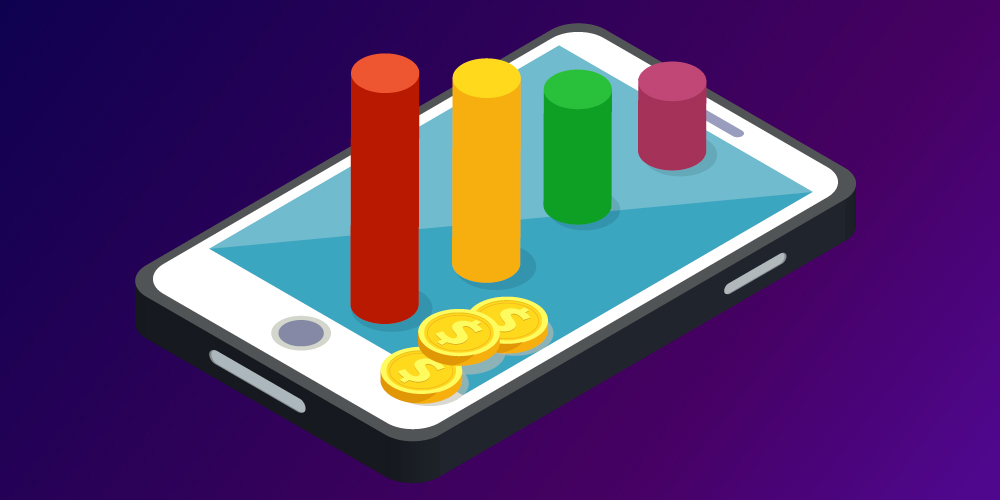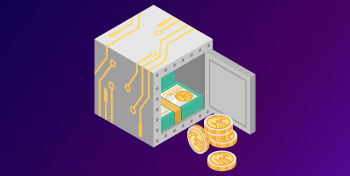Historically, the four main functions of “money” have largely been defined as a medium of exchange, a general measure of value, a standard of value, and a means of saving. Recently, however, other aspects, such as information and investment functions, have become the subject of an ever-evolving discourse about what money is, its use and functions.
Real-world Peer-to-peer Cryptocurrency Opportunities
Today, as both developed and developing countries move towards a cashless economy, digital currencies are slowly but surely becoming increasingly popular as alternative, and even preferred, instruments for monetary activity in these emerging financial systems.
Digital currencies are new payment systems combined with new crypto assets, such as Bitcoin, that are not issued by the central bank. These digital representations of value can be sold digitally and function as a means of exchange or storage of value, but do not have the status of legal tender (i.e. valid and legitimate offers of payment when transferring value) in most jurisdictions.
Cryptocurrencies are not issued or guaranteed by any jurisdiction, and therefore perform the functions of money only by agreement within their user communities. Some jurisdictions are considering introducing central bank-issued digital currencies (CBDC) as a transition away from cash. It is also seen by governments as a way to crack down on decentralized peer-to-peer alternatives to e-money, such as Bitcoin Cash, which are already available to users, and who want to use cryptocurrencies for daily transactions with low fees, and without problems using fiat or other e-money.
Is Bitcoin Cash (BCH) a real peer-to-peer version of electronic money?
Bitcoin Cash came about as a result of long-standing disagreements between different factions of the Bitcoin community. It’s about scalability. It is important to note that as Bitcoin has grown, the speed of transactions on the network has become slower. The number of transactions that need to be processed in the block chain has increased exponentially as more people use the network, but the size of each block has not increased with the number of users to accommodate more transactions per block mined.
The main difference between electronic money in the form of Bitcoin Cash and fiat currency is that fiat currencies are designated as legal tender, are traded and commonly used, and are accepted as means of exchange in the issuing countries. Cryptocurrency, such as Bitcoin Cash, is distinguished by the fact that it is not issued by a central authority, and is not subject to manipulation by fiscal or other means. Bitcoin Cash is also revolutionary, because unlike electronic money, which is a digital representation of a fiat currency, it is not a digital transfer mechanism, since the transmitted value is always indicated in BCH, and the network does not electronically transmit the value that has the status of legal tender, despite the fact that BCH itself can be sold for fiat.
Why not Bitcoin (BTC)?

Bitcoin is called gold 2.0, or digital gold, because it shares some characteristics, such as limited supply through mining, as well as decentralization and independence from central banks or government agencies. Since Bitcoin is separated from the existing paper money system, it can be a safe haven or can serve as a temporary means of saving from financial turmoil or from the collapse of the financial system.
Bitcoin is not an obligation for the issuer in its balance sheet and, therefore, is not considered as a claim of the owner to the issuer. Many critics argue that the BTC has an external value in the sense that people want it, but has no internal value in the conventional sense. This means that its value ultimately depends on its usefulness as a currency in the consumer economy. This is where what is now called Bitcoin Cash comes into play.
It can be argued that the intrinsic value of Bitcoin can only be realized in the form of Bitcoin Cash, since the evidence for the presence of BTC in everyday trading is mostly anecdotal, and consists of stories in the media about people going all-in on the crypto, or about companies that are willing to accept them. Proponents of BCH consider it a more suitable medium for exchange, while BTC is now considered more suitable as a means of saving than a purely peer-to-peer version of electronic money.
Decentralized cryptocurrencies are distributed, peer-to-peer, open-source, algorithm-based virtual currencies that do not have a central governing body, nor do they have central monitoring or oversight. However, the current reality of Bitcoin is such that the story of those who are not covered by banking services will find salvation in Bitcoin-a myth. Only the financially enabled can afford the high transaction fees on the network, due to the scaling issue.
But, as with many of the cutting-edge innovations that Bitcoin Cash is, only time will tell whether the benefits of Bitcoin will ultimately affect major populations around the world, and perhaps even those at the heart of the wealth pyramid. Bitcoin Cash’s peer-to-peer architecture and low barriers to entry can lead to a generation of innovative financial services, much as the open architecture of the Internet has led to new online services. Bitcoin Cash provides a much cheaper and faster payment system for international transfers.
As the blockchain industry continues to grow, it is possible that platform-related cryptocurrencies will be much more differentiated than what we are used to today. Most likely, they will differ not only in their monetary functions as a store of value, means of exchange and units of account, but also in the functionality offered by their respective platforms. That is, currencies will no longer just provide payment services, but will provide access to interaction with other users of the platform. This means that more digital currencies will be inseparable from the characteristics of the platforms on which they are exchanged.
Looking to the future

Traditional features of a currency, such as its ability to retain value, may not be important in determining its success in a world where these functions can be shared, such as in the virtual world. This means that the attractiveness of a digital currency is likely to be determined by other network features, such as the network’s information processing algorithms, its privacy features, and the set of counterparties available on the network.
Cryptocurrency competition can actually be reduced to competition between packages of information and network services. An example is the growing network effects of the Ethereum or Binance Chain ecosystems – Ethereum 2.0 and Binance Smart Chain. These solutions can strengthen network services and address compatibility issues that typically create excessive barriers to trade between networks.
The Simple Ledger Protocol is a simple token system for the Bitcoin Cash network, allowing anyone to create tokens without permission. According to the SLP, virtual gaming assets, licenses, digital media rights, gift cards, and company shares can be tokenized. Tokens can also be traded on a peer-to-peer network without intermediaries, which allows you to create a new kind of decentralized digital market. SLP tokens can be easily created, sold, and managed on the Bitcoin Cash blockchain in seconds, costing the user just a fraction of a penny per transaction.
The importance of convertibility for cryptocurrencies is similar to the importance of platform interaction. Networks and platforms tend to create fragmented markets, but integration is crucial for the efficient functioning of the monetary system. Payment networks should not create cumbersome barriers to trade, but instead should create convertibility regimes to the ecosystem’s official digital currencies to lower these barriers. This will allow new users to transfer value to the network without worrying about the stability of the network currency.
Digitalization is revolutionizing money and payment systems. Despite the fact that digital money itself is not new to the modern economy, cryptocurrencies such as Bitcoin Cash can now facilitate instant peer-to-peer transfers of value, which was previously impossible. Such a cryptocurrency could become a key part of a larger, systemically important socio-economic movement that transcends national borders and changes the way payments and user data interact. In much of the developing world, where there are many barriers to trade and poor infrastructure to enable efficient cross-border exchange, a p2p version of electronic money such as Bitcoin Cash can be a major solution to these problems.


